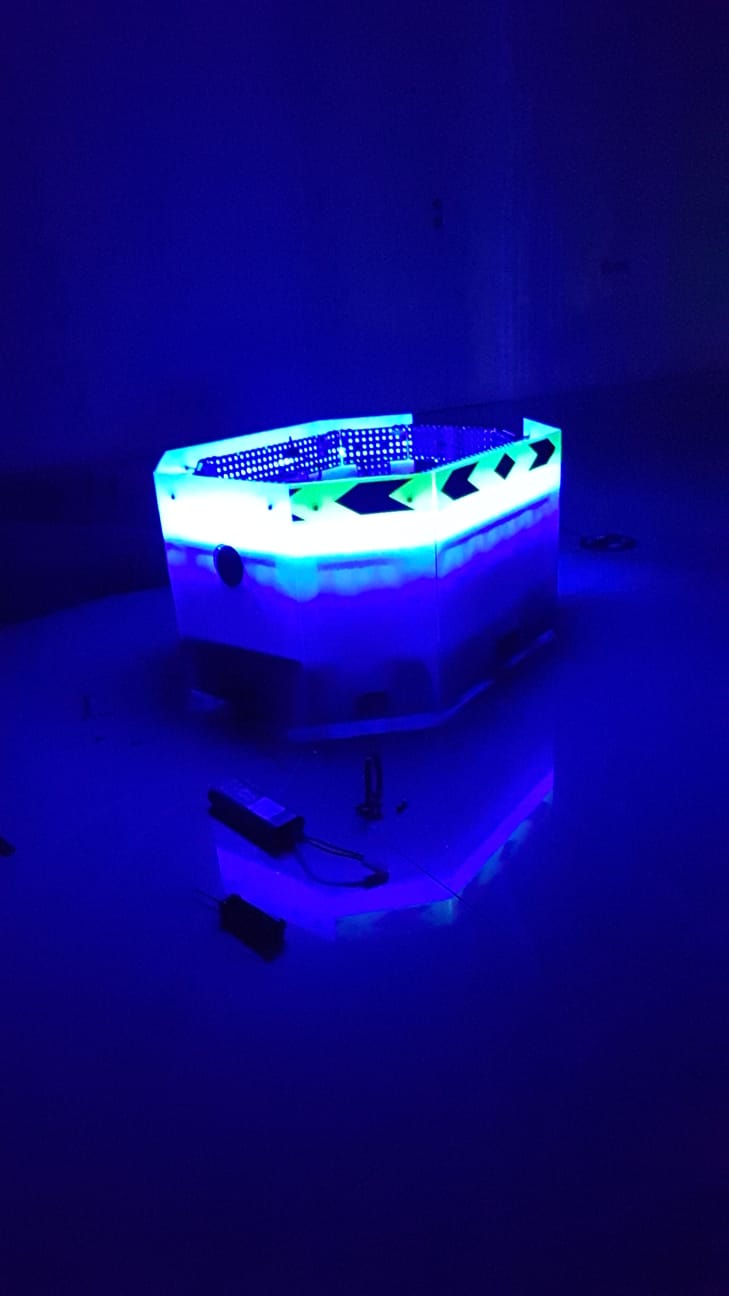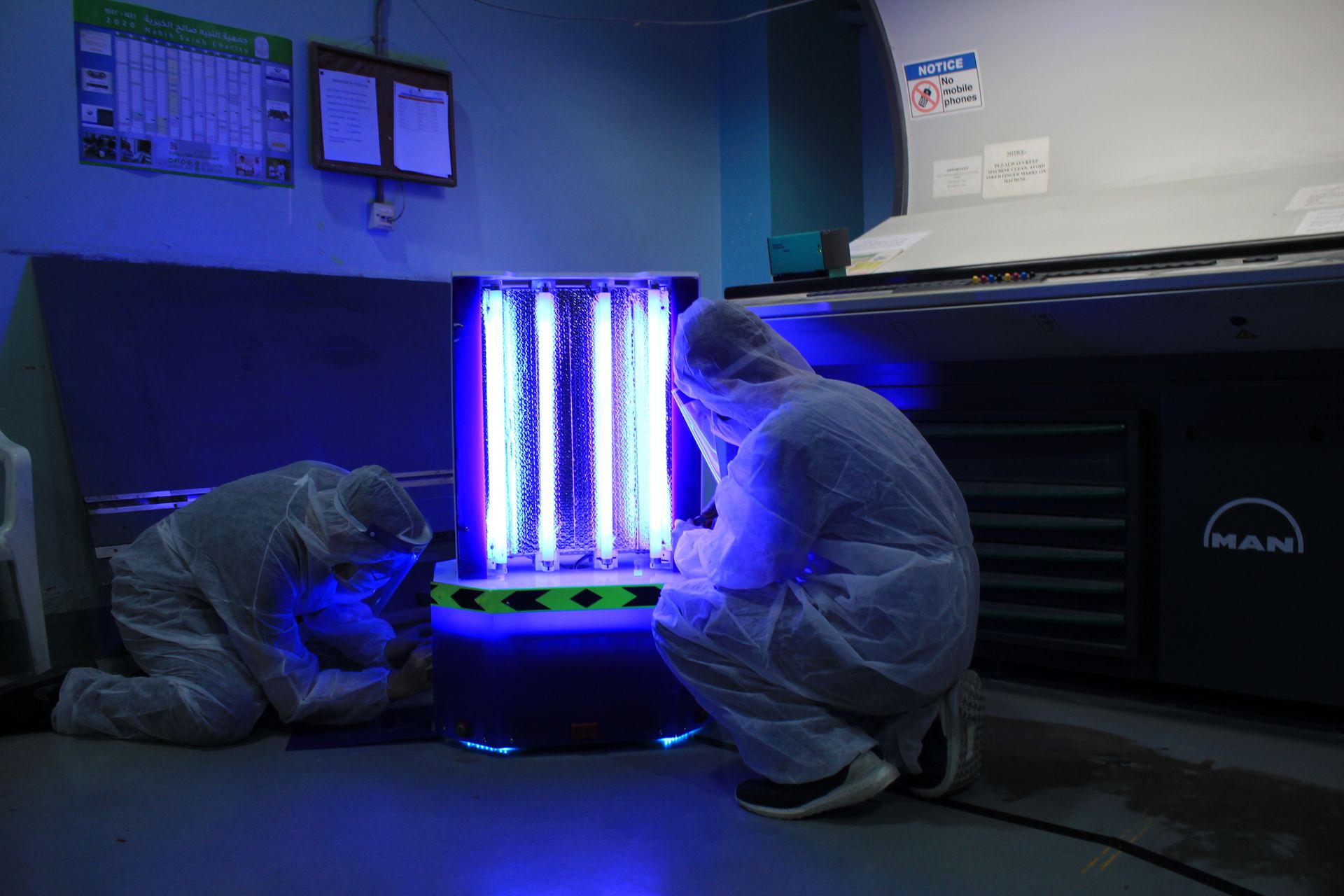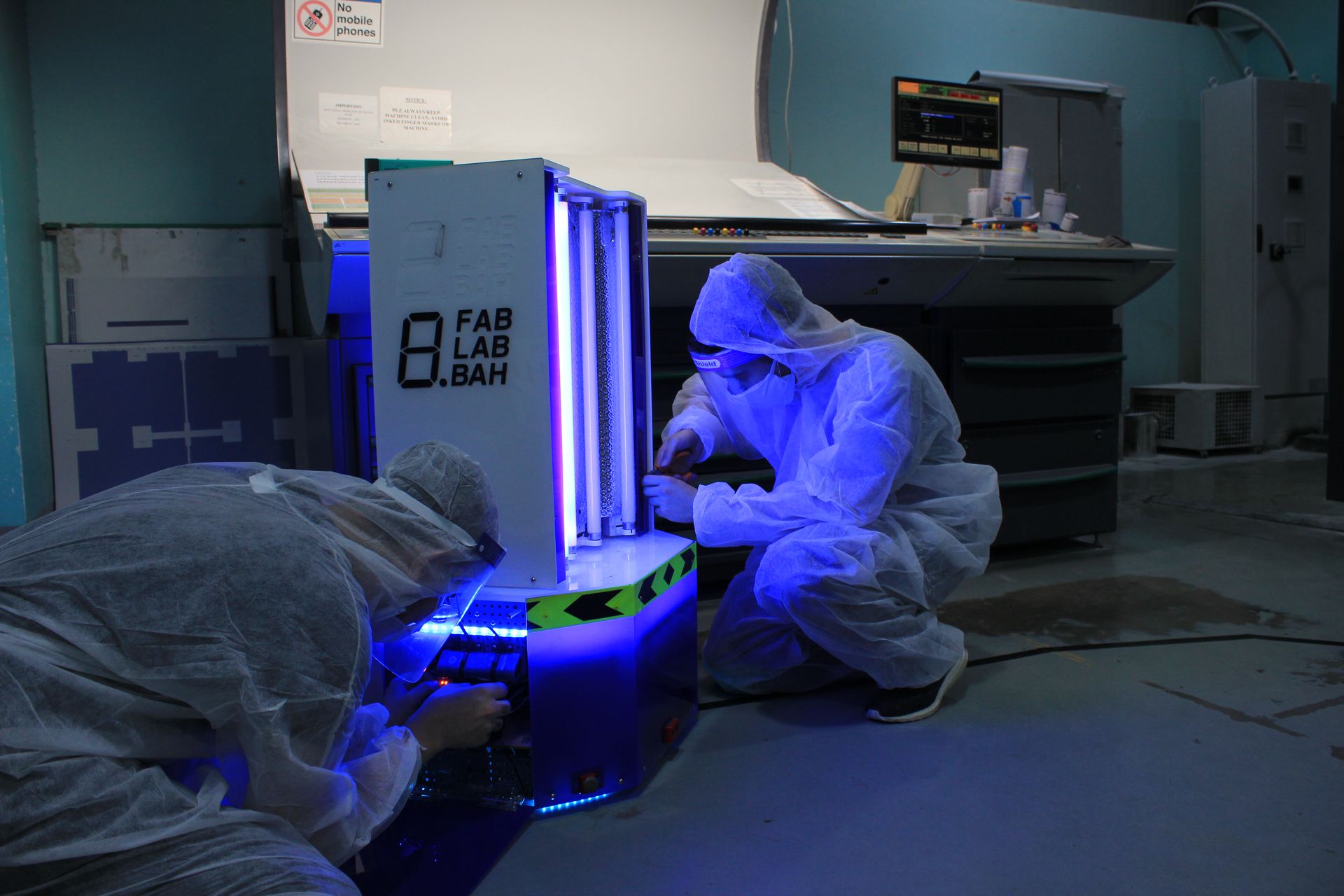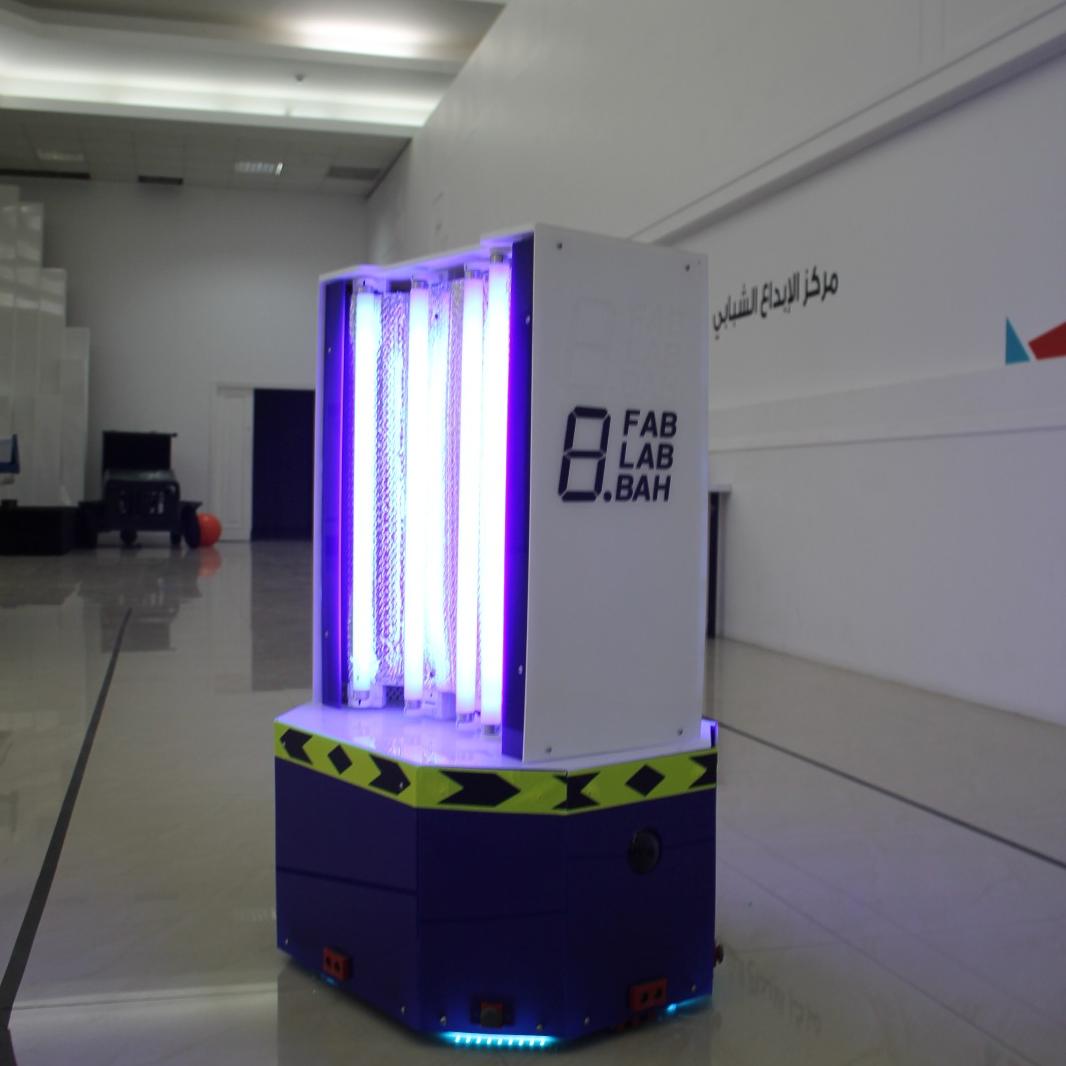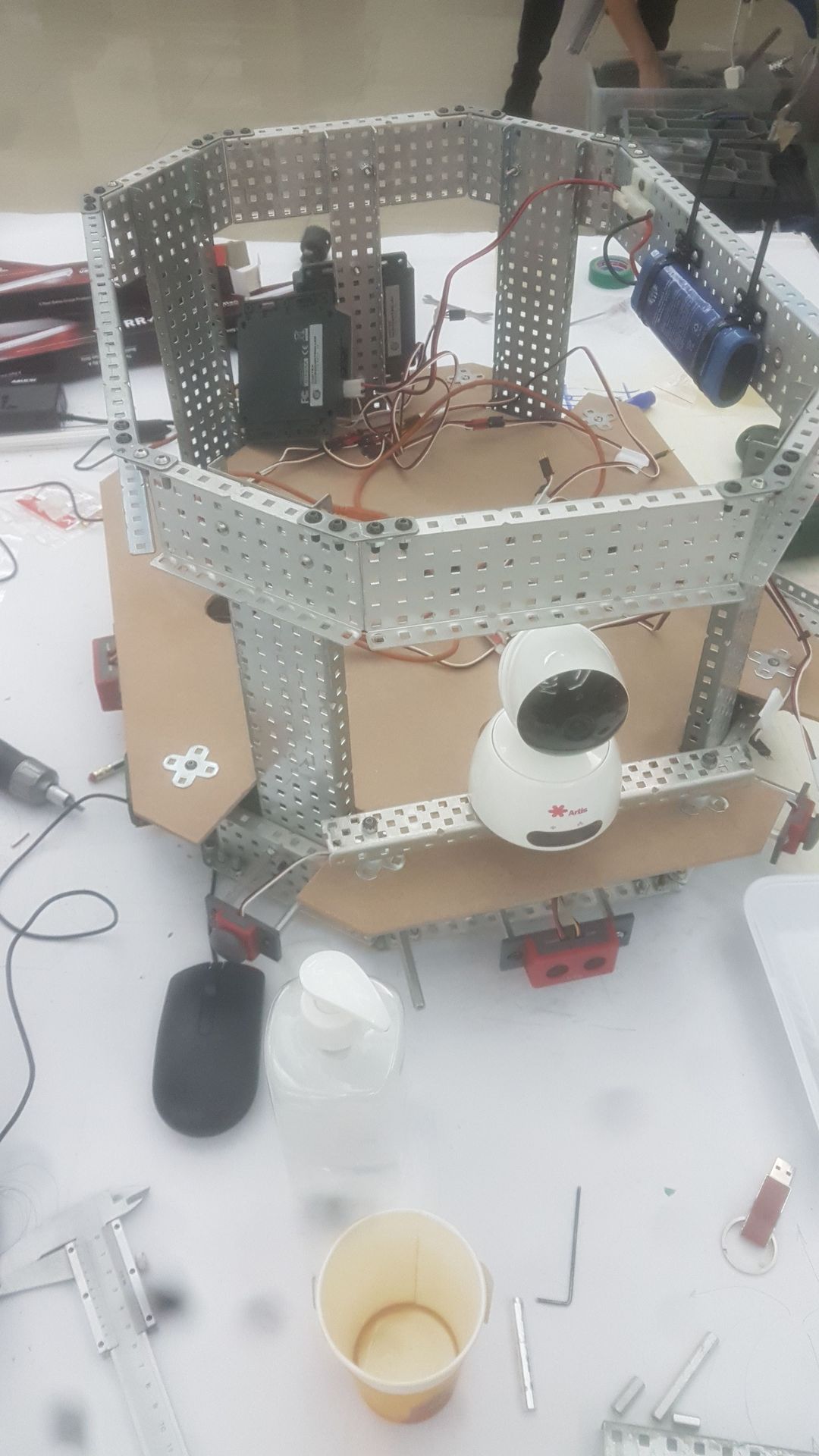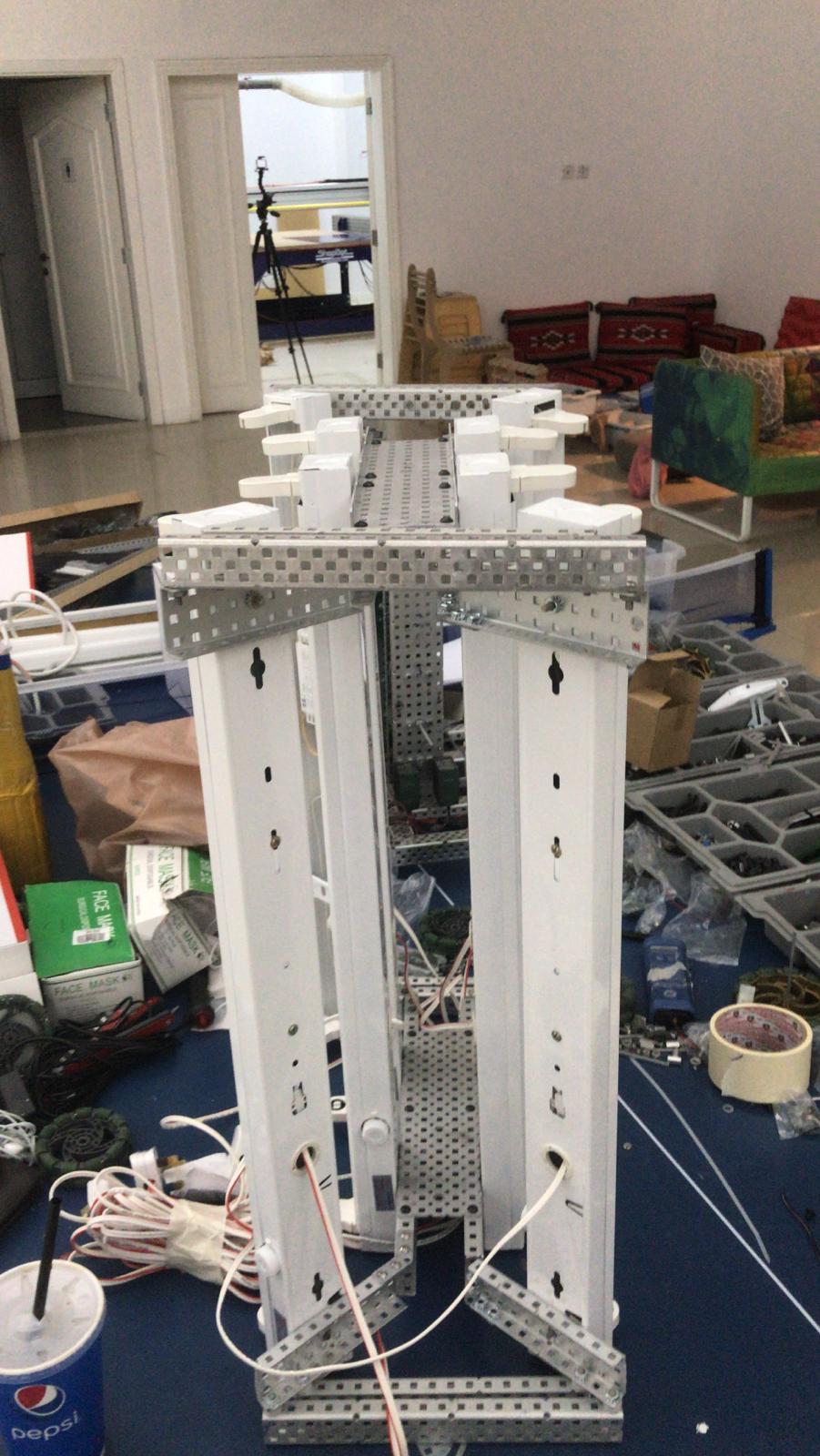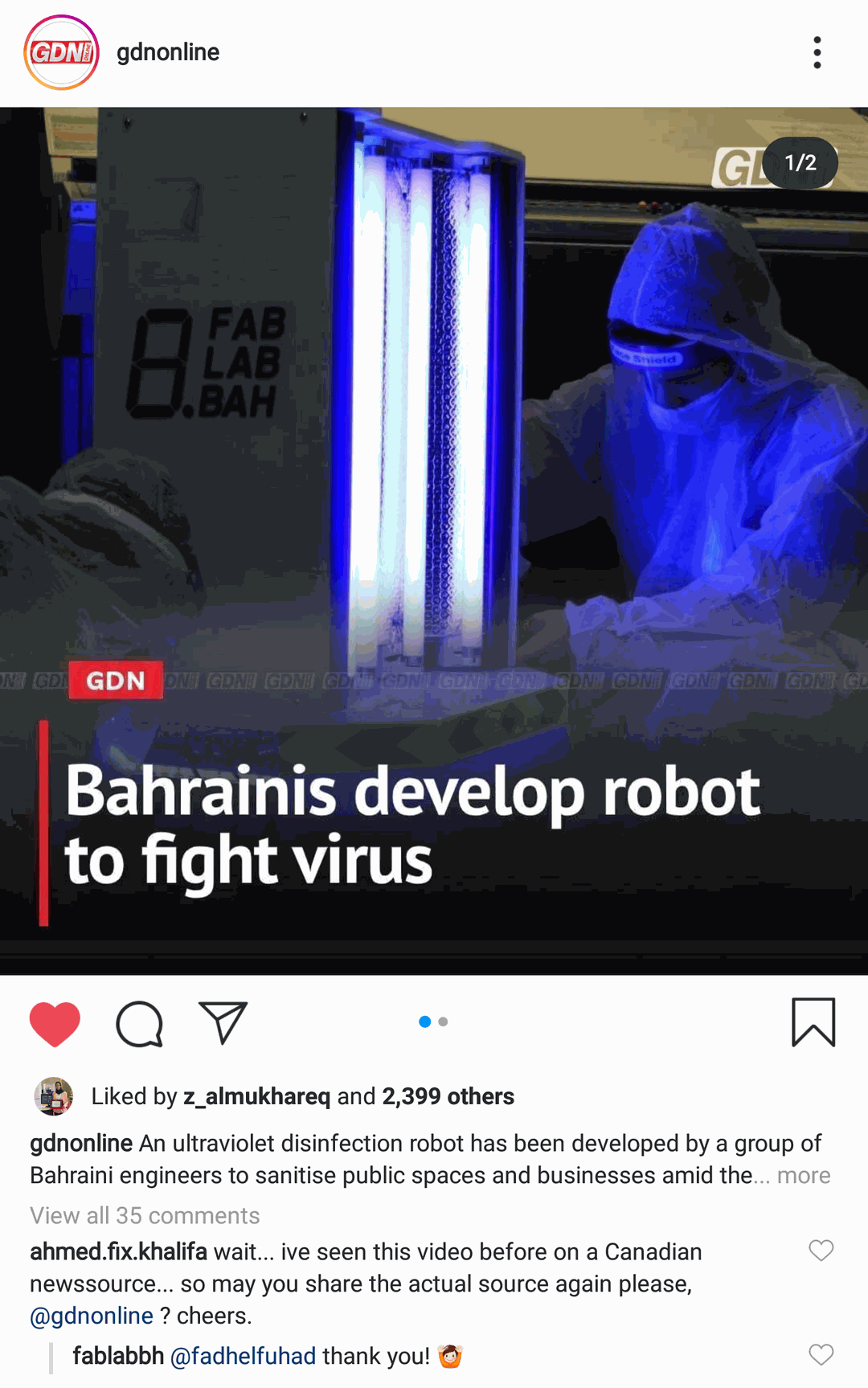During the coronavirus, I was lucky to be one of the FabLab members that worked on the rapid development of a mobile UV sterilization robot.
The robot is expected to be used in supermarkets to autonomously sterilize the supermarket shelves & products. It's intended to ensure the safety of customers while shopping by raising the cleanliness of the products. As a reminder, during the coronavirus, people were afraid to buy items, and they feared deliveries because the driver might be affected by coronavirus, which could transfer the virus to their homes. Our strategy was to build a functional, to-scale robot prototype in 7 days; we did it in 6 days. This was due to the team collaboration and variety of backgrounds we had (electronics, software, digital fabricators, instrumentation and control, mechanical). Moreover, we worked 14 hours per day because we were so excited. One of the challenges was the lack of materials in Bahrain due to the pandemic, so we had to innovate. We used salvaged structural and mechanical parts, bought some devices and disassembled them to take the parts, and we used available materials in the FabLab to fabricate the body. I was responsible, along with my colleague, for building the structure. Then, my focus shifted to fitting an external body onto the existing mechanical and structural parts. I designed the body using Fusion360 and initially CNC cut some of the body parts using 3mm MDF, just to ensure that my design was correct. Then, I used acrylic sheets and cut them using a CNC machine. Finally, I fitted the external parts onto the body.
In the end, we had the chance to try the robot in an industrial factory, where we tested the robot's navigation system and adjusted the code accordingly.
